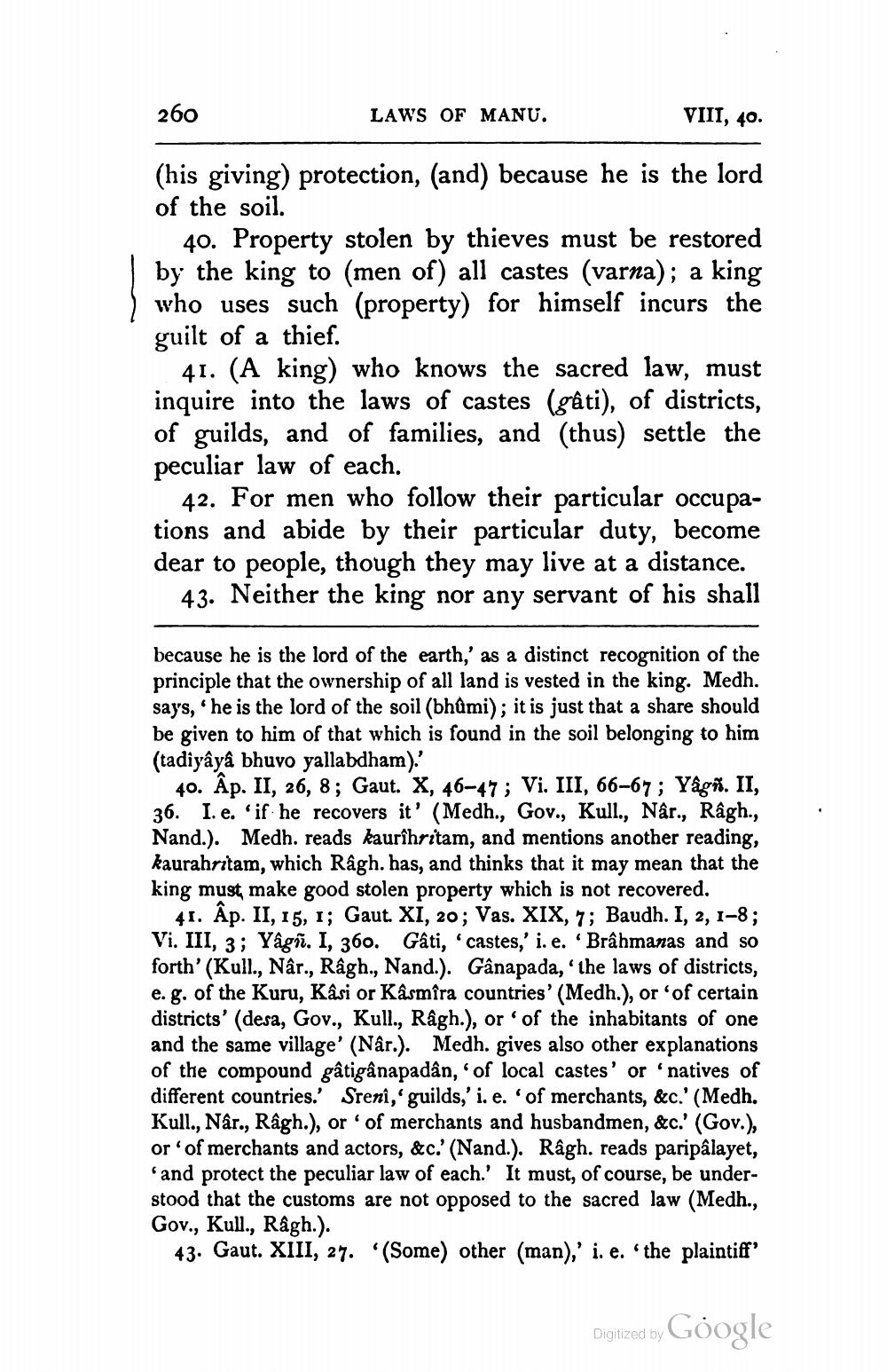________________
260
LAWS OF MANU.
VIII, 40.
(his giving) protection, (and) because he is the lord of the soil.
40. Property stolen by thieves must be restored by the king to (men of) all castes (varna); a king who uses such (property) for himself incurs the guilt of a thief.
41. (A king) who knows the sacred law, must inquire into the laws of castes (gâti), of districts, of guilds, and of families, and (thus) settle the peculiar law of each.
42. For men who follow their particular occupations and abide by their particular duty, become dear to people, though they may live at a distance.
43. Neither the king nor any servant of his shall
because he is the lord of the earth,' as a distinct recognition of the principle that the ownership of all land is vested in the king. Medh. says, he is the lord of the soil (bhůmi); it is just that a share should be given to him of that which is found in the soil belonging to him (tadiyâyâ bhuvo yallabdham).'
40. Ap. II, 26, 8; Gaut. X, 46-47 ; Vi. III, 66-67; Yagñ. II, 36. I. e. if he recovers it' (Medh., Gov., Kull., Nar., Râgh., Nand.). Medh. reads kaurîhritam, and mentions another reading, kaurahritam, which Râgh. has, and thinks that it may mean that the king must make good stolen property which is not recovered.
41. Âp. II, 15, 1; Gaut XI, 20; Vas. XIX, 7; Baudh. I, 2, 1-8; Vi. III, 3; Yâgs. I, 360. Gâti, 'castes,' i.e. "Brâhmanas and so forth' (Kull., Nár., Râgh., Nand.). Gânapada, the laws of districts, e. g. of the Kuru, Kasi or Kâsmîra countries' (Medh.), or of certain districts' (desa, Gov., Kull., Râgh.), or of the inhabitants of one and the same village' (Nâr.). Medh. gives also other explanations of the compound gâtigânapadân, of local castes' or 'natives of different countries.' Sreni,' guilds,' i. e. of merchants, &c.' (Medh. Kull., Nár., Râgh.), or of merchants and husbandmen, &c.' (Gov.), or of merchants and actors, &c.' (Nand.). Râgh. reads paripâlayet,
and protect the peculiar law of each.' It must, of course, be understood that the customs are not opposed to the sacred law (Medh., Gov., Kull., Râgh.).
43. Gaut. XIII, 27. (Some) Other (man),' i. e. 'the plaintiff'
Digitized by Google




